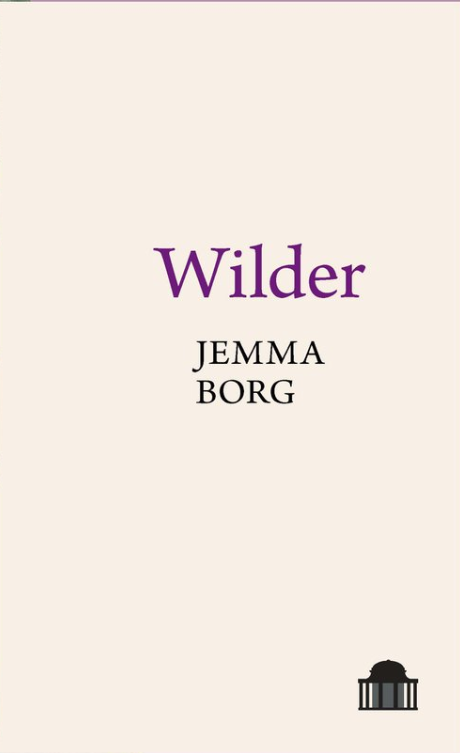Wilder (Shortlisted, TS Eliot Prize)
Jemma Borg
(Liverpool University Press, 2022); pbk £9.99
Jemma Borg’s latest collection of poetry, Wilder, is a revelation and a delight. I have not read her poetry before. I was drawn to her book because of its title, Wilder, with its dual reference to the old English—‘wilde’ from the Germanic weald meaning open field and wild as in bewilder. I have read much informative and beautiful writing from men about wilding and rewilding; however, when a writer is acknowledging their own internal ‘wild’ and its place within the natural world, the feminine gendered gaze has a particular attraction.
Each of the 39 poems opens a world that is familiar, recognisable, and yet new to me. The reading of each one has similarities to swimming in diverse wild pools. There is a look to it. A toe in the water reveals promise and atmosphere but the total immersion is a different experience, a gestalt. I need time to recover from each before I can contemplate the journey into the next.
The second poem, ‘Shadows and Warriors’, describes an echo between a river, the sea and humankind. The subject of the poem is fluid. Sometimes it is the water itself, sometimes it is the reader swimming. The character of the river, the sea and the writer merge. The skill with which the human and the water mingle unsettles and excites. The journey of a river from its source to ocean is told as an odyssey introduced by a quote from Odysseus.
like shadows and warriors who are not fighting,
and out on the Libyan Sea
where the hopeful drown on their way to Europe,
a fish jumps[.]
‘Peacock Butterfly Late’ shimmers on the page. Borg’s words are akin to tinkling yet precise piano notes. They are lightness themselves. The certainty with which she paints the fragility of the butterfly in autumn indicates the care with which she observes and witnesses the opening and closing of a butterfly’s wings.
which kind of fragility will be lost first –
the slow attention that breeds gentleness
or the butterfly’s strong-frail pulse: see
the articulate lightness and, little more
than the weight of a dance, the soundless doors
of her wings breathing[.]
Borg trained as a zoologist and evolutionary geneticist prior to becoming a poet. Her perspective of the human as a component of nature rather than separate from it informs each line. Alongside the context within which she writes, is also the celebration of the heroism of each protagonist. A mythological status is brought to each subject. As a reader I am awed by the triumph of mother giving birth and a baby suckling in ‘Food’ or the miracle of a foetal heartbeat in ‘Ultrasound’.
We have peeked – forgive us – to find you
Are barely more than a sound: a rally drum[.]
‘White Gold’, a poem describing the experience of the poet’s baby son suckling at her breast, categorises breastmilk as mythical treasure. Here the mother’s love for her son is made tangible without sentimentality. There is a ferocity in the young boy’s appetite for his mother’s milk and her complete giving of herself to him. He is at once part of her and still a stranger.
I have long likened the mother experience to that of a warrior. Borg has created work that hovers between gentle generosity and fearful terrifying power. It is told with the status of the Greek male led myths.
pearls
of milk at his lips, flecks of gleam on his chin
With the eyes of a stranger, he draws himself down
and the milk gives him weight,
the roots of wildness still white in him
And searching for ground
He sucks at the air and smiles[.]
Jemma Borg has rekindled my love of poetry and faith in the future. I have been waiting for many years for this book, not being aware that I would ever have the great pleasure of encountering it.
Kirsty Bogle


Leave a Reply